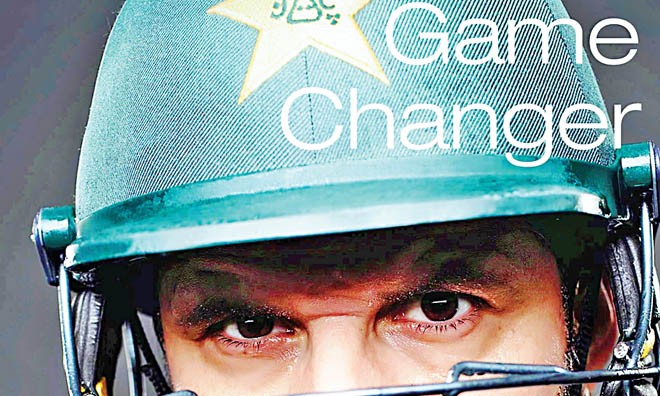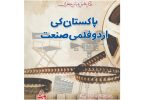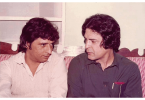In his recently-released autobiography, the chapters are short but explosive, thus matching the length of most of Afridi’s innings
Shahid Afridi remained part of the Pakistan cricket team for around 20 years and those who followed his career know that it has been quite a controversial journey for the country. Yes, he won many matches for Pakistan but his conduct wasn’t always ideal for an international cricketer. Many of his choices are things people will tell their kids in coming years are not to be done, ever.
Similarly, when he decided to go with his autobiography (which we hope is his first and last one, unlike his retirements), he opted for a writer – Wajahat S Khan – who was as much at ease with cricket as most Pakistani cricketers are at batting while facing Dale Steyn.
He may be a “Senior War Correspondent”, a well-known TV personality, someone who contributes to international publications but in order to write a cricketer’s autobiography, you have to be part of the cricket arena, or things will go sideways, just as they did with The Game Changer.
The book is full of factual errors that could have been corrected had it been sent for proofreading to someone who has been there, done that.

On a personal note, I know that when you are writing an autobiography, you tend to miss events and mess up dates. It happened when former Pakistan captain Mushtaq Mohammad wrote his book. Fortunately, I was part of the team that was able to point out the inconsistencies before the book was sent to publishers and there was hardly anything incorrect in the book.
In the case of Shahid Afridi’s book, the year when Javed Miandad hit his famous last-ball six is mentioned as 1987. It was 1986. The Afridi-Gambhir spat took place in India in 2007, not during the Asia Cup in 2008.
Pakistan played the first Test against India in 2005 in Mohali, not in New Delhi and won the Bangalore Test in the same series, not drew it.
Salahuddin Ahmed Sallu was mentioned as Salahuddin Satti, and the 37-ball century wasn’t available for viewing until Rainbow Center (a market in Karachi’s Saddar bazaar which was known for producing pirated audio and video cassettes and CDs) provided it a good six months after it was scored.
That doesn’t mean that Game Changer isn’t worth your time; it is. There are a lot of things that you get to know about Shahid Afridi’s career from this book such as his interaction with colleagues and the players he didn’t like much; how much he was fond of the late Bob Woolmer and Younis Khan; how he detested a senior ‘unnamed’ player for ‘rebelling’ against the Captain; how serious he was during the ICC World T20 in 2009; how much cricket meant to him when was selected to represent Pakistan; who advised him to bowl leggies when he was comfortable as a pacer, his dream ahead of the iconic Nairobi encounter against Sri Lanka; how he felt (as a runner) during Saeed Anwar’s mammoth 194 innings in 1997; and why he didn’t like playing under Waqar Younis and Javed Miandad as coaches.
Furthermore, the chapters are short but explosive, thus matching the length of most of Afridi’s innings. While he mentions the 2010 spot-fixing saga and how it unfolded, he forgot to mention why he didn’t take it to the ICC, especially when he knew that the management wouldn’t do anything about it. He also casually doesn’t mention his Test debut (where he took five wickets in an innings on his home ground Karachi, against Australia); forgets about his public spat with Younis Khan over the change in the batting order in the West Indies; mentions the pitch-digging adventure as if it was something unimportant; takes cover behind patriotism while describing the ball-chewing incident; doesn’t care to explain his failure at a Super Over against England and criticises Misbah-ul-Haq’s scoop in the final of World T20 in 2007 when in fact he played the most irresponsible shot of the match, for a first-ball duck!
And then there was the scoop of the century regarding his age — it seems that he wanted to create controversy rather than clear the air. That’s why he mentions his year of birth as 1975 instead of 1980, making life difficult for all those who dream of playing cricket for Pakistan. Now every cricketer’s age will be in question thanks to “Boom Boom” who had to clarify that it was 1977, not 1975 as published in the book. If it was ‘75, then, he was 21 years old at the time he made his ODI debut, killing the “teenager element” mentioned in the book elsewhere. The first half of the book is quite interesting as you relive the time when Pakistan had more superstars in the team than India.
Then Afridi stops mentioning cricket and starts talking about other things such as politics, the country’s armed forces and his children. It reads like “Wajahat S Khan with Shahid Afridi”, not the other way around. It can be expected from a man who was fooled by a boy disguised as a girl on the phone; doesn’t consider hitting spectators and media important enough to be addressed in print and talks about temperament in his book, something he didn’t master after representing Pakistan for so many years.







